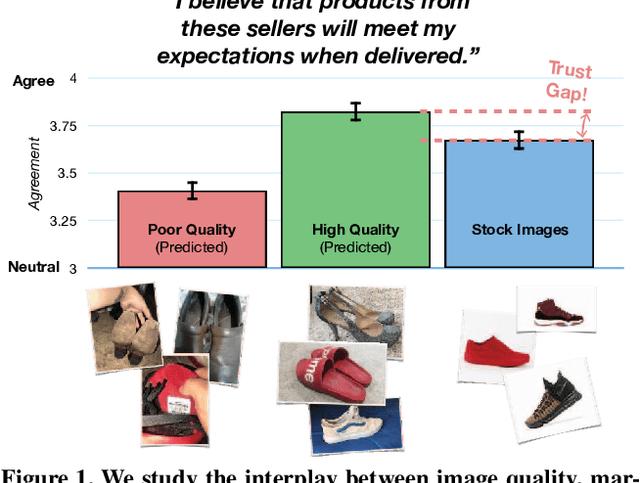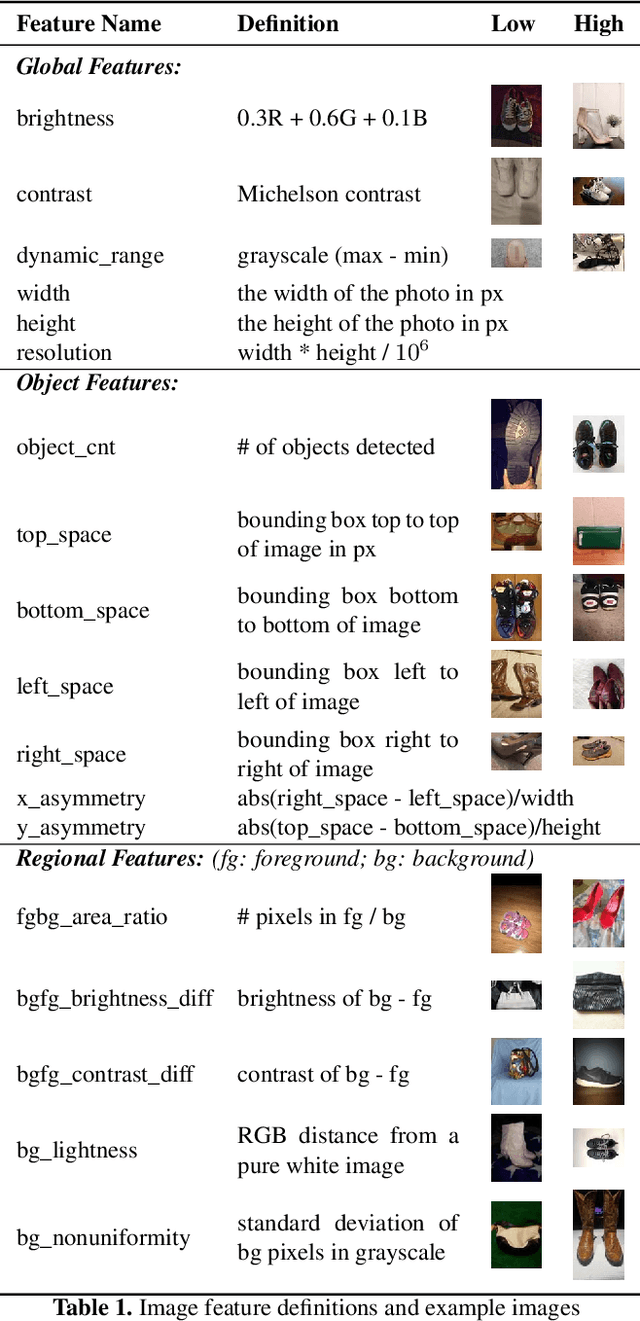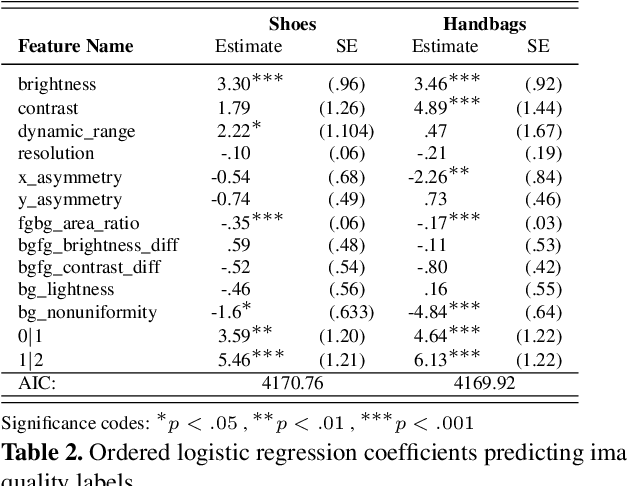Hui Hong
Understanding Image Quality and Trust in Peer-to-Peer Marketplaces
Nov 26, 2018



Abstract:As any savvy online shopper knows, second-hand peer-to-peer marketplaces are filled with images of mixed quality. How does image quality impact marketplace outcomes, and can quality be automatically predicted? In this work, we conducted a large-scale study on the quality of user-generated images in peer-to-peer marketplaces. By gathering a dataset of common second-hand products (~75,000 images) and annotating a subset with human-labeled quality judgments, we were able to model and predict image quality with decent accuracy (~87%). We then conducted two studies focused on understanding the relationship between these image quality scores and two marketplace outcomes: sales and perceived trustworthiness. We show that image quality is associated with higher likelihood that an item will be sold, though other factors such as view count were better predictors of sales. Nonetheless, we show that high quality user-generated images selected by our models outperform stock imagery in eliciting perceptions of trust from users. Our findings can inform the design of future marketplaces and guide potential sellers to take better product images.
 Add to Chrome
Add to Chrome Add to Firefox
Add to Firefox Add to Edge
Add to Edge